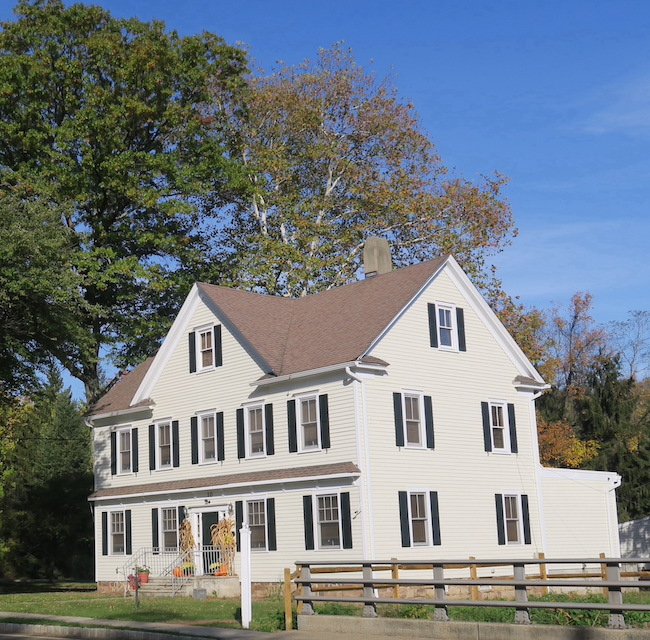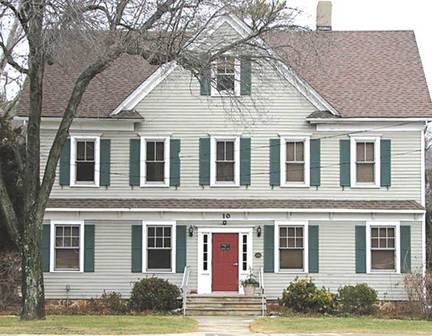The World: Thursday Evening , February 9, 190
AMAZING STORY OF THE NEW JERSEY SLEIGH MURDER
WOOD, HIS WIFE, AND JURY WHICH ACCUSED HIM OF MURDER
George H., Wood, Contractor,
Formally Accused by Coroner's Jury.
MOTIVE IS A MYSTERY.
Authorities Can Discover No Reason for Shooting to Death
Man Without Enemies.
VICTIM WAS NOT ROBBED.
Week's Investigation Brings Out Many Strange Postures In Assignation of Grocer Williams.
The slaying of Grocer George WIllams, one of the kindliest men in the little New Jersey Village of Watchung. has come out into relief as a crime unique-a crime without a vestige of motive to suggest an impulse. With the murder one week old to-day, a Coroner's jury has sat in Inquest and delivered a verdict m H. Wood, A young contracting ironworker of this city. killed the grocer aa they were journeying together in a sleigh along the Coontown road.
Nineteen witnesses have been examined, Including the aged grandmother of the murderer. Their testimony Indicates that Wood fired the fatal shot, but no word from their lips has offered the slightest suggestion of motive.
No Animus Apparent.
Nor does it seem to have been the wanton crime of a disordered mind. Link by link the chain of evidence that has fettered the young contractor as a slayer seems to show that he carefully and deliberately planned to kill. It is true that he had no animus against Williams, as far as can be shown.
But when he entered the sleigh with the grocer, he had a weapon in his pocket. He also and a little cap with which to partially disguise himself when exigency arose. After firing the fatal shot he threw away his black fedora, put on the little cap and fled across the snow crusted field. He fled not as a man Rees with a great fear in his heart, for every step he took was with the deliberate purpose of covering up his trail. The following day he appeared at the home of a relative in New York, declarIng that his mind had been a blank for any days.
Robbery Not the Motive,
The life story of Wood, the history of the lIttle village, nestling among hills and wastes of land still in a primitive state of wildness, and an account ol the simple life and tragic death of the storekeeper, when woven together, only make more complex this strange crime. It might be said in the beginning that robbery was not the motive. The murdered man had but $7 in his pocket with him when he started on his fatal rde., not one cent of which was taken by his murderer.
George Wood was born and brought up in Warrenville, one of the cluster of villages neighboring about Plainfield. As a boy he went to the village school and worked one one of the several farms is grandmother, Mrs Sarah Pollach, owns in Warrenville. Just across a strip of land was the farm of George H Witten. Violet Whitten was the youngest child of this farmer and she and George wood were boy and girllovers. The friendship that ended in their marriage union began in the village school.The boy remained in school until he was fifteen years old, when he quarreled with his father George Wood, now dead, a man who had the respect of everyone in his rural community. Though not wild, young Wood could not bear the monotony of a farm;s life. He wanted to learn a rade and served his apprenticeship as a ironworker. He procured oo , for several years.and seven years ago returned to Warrenville to resume is courtship. In a few months he had married Viola Whitten and returned with her to New York.
Had Two children,
Two children were born of this union. and for and for a few years the home life of the little family was supremely happy. Wood had become a master at his craft.From Journeyman work he had began contracting and the future loomed bright to him and his young wife, But, though & skilful ironworker, the young man lacked executive ability. Where one of his contracts would be successful, two would fall.
Three years ago he became Involved financially and sought aid of his father-in-law. They quarreled and became estranged. Later the quarrel was patched up. but their cordial relations were never entirely resumed.


